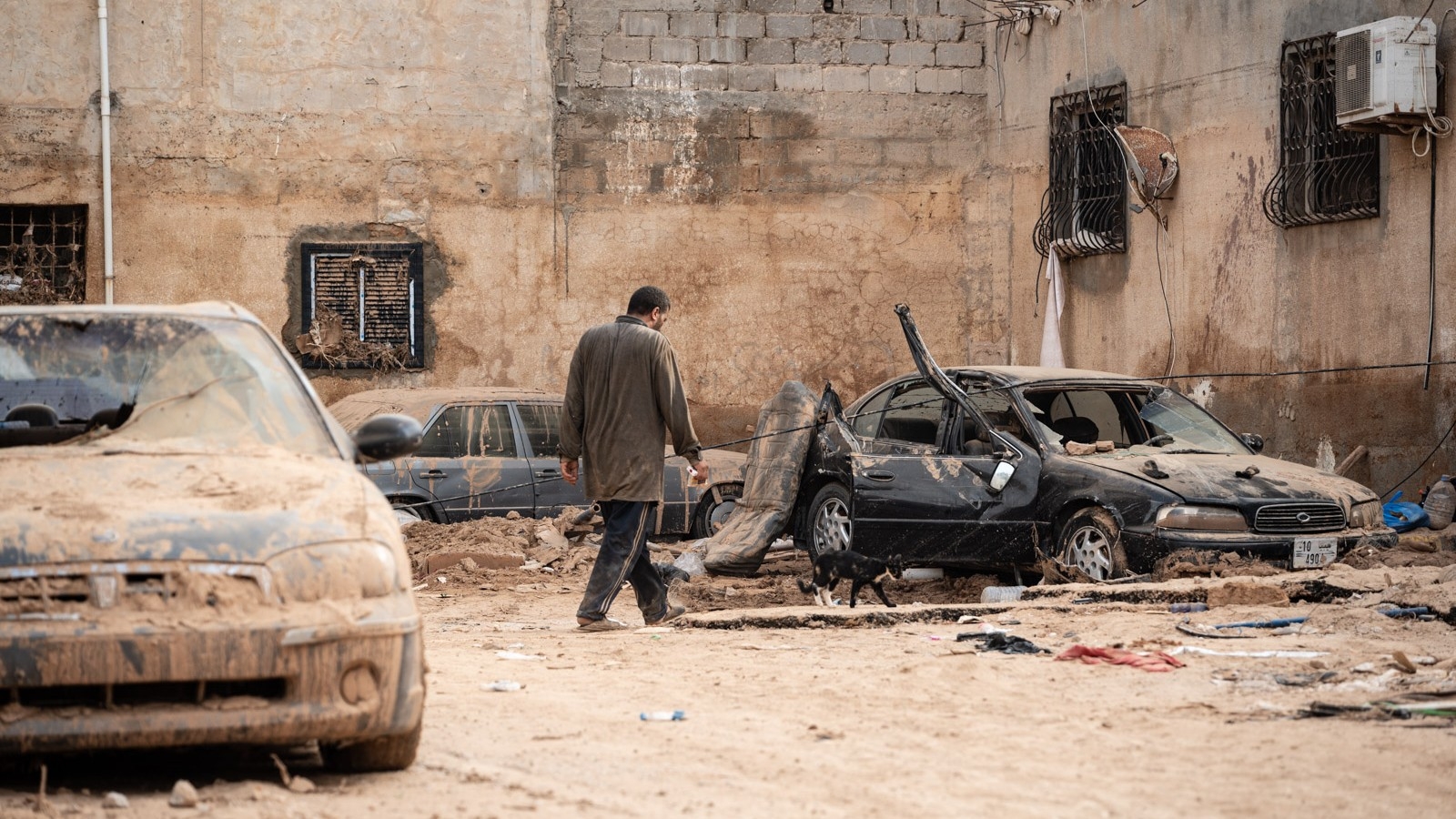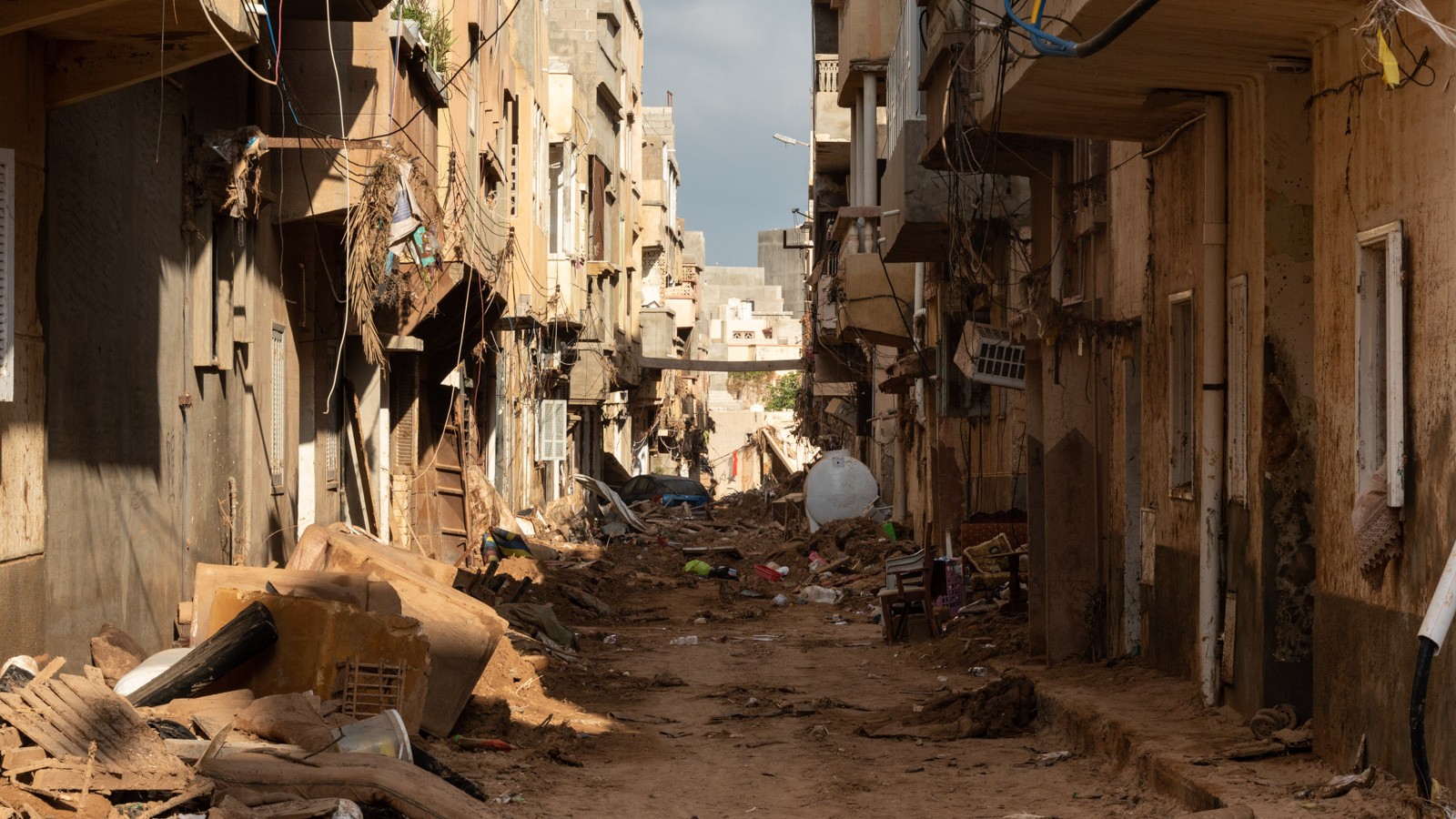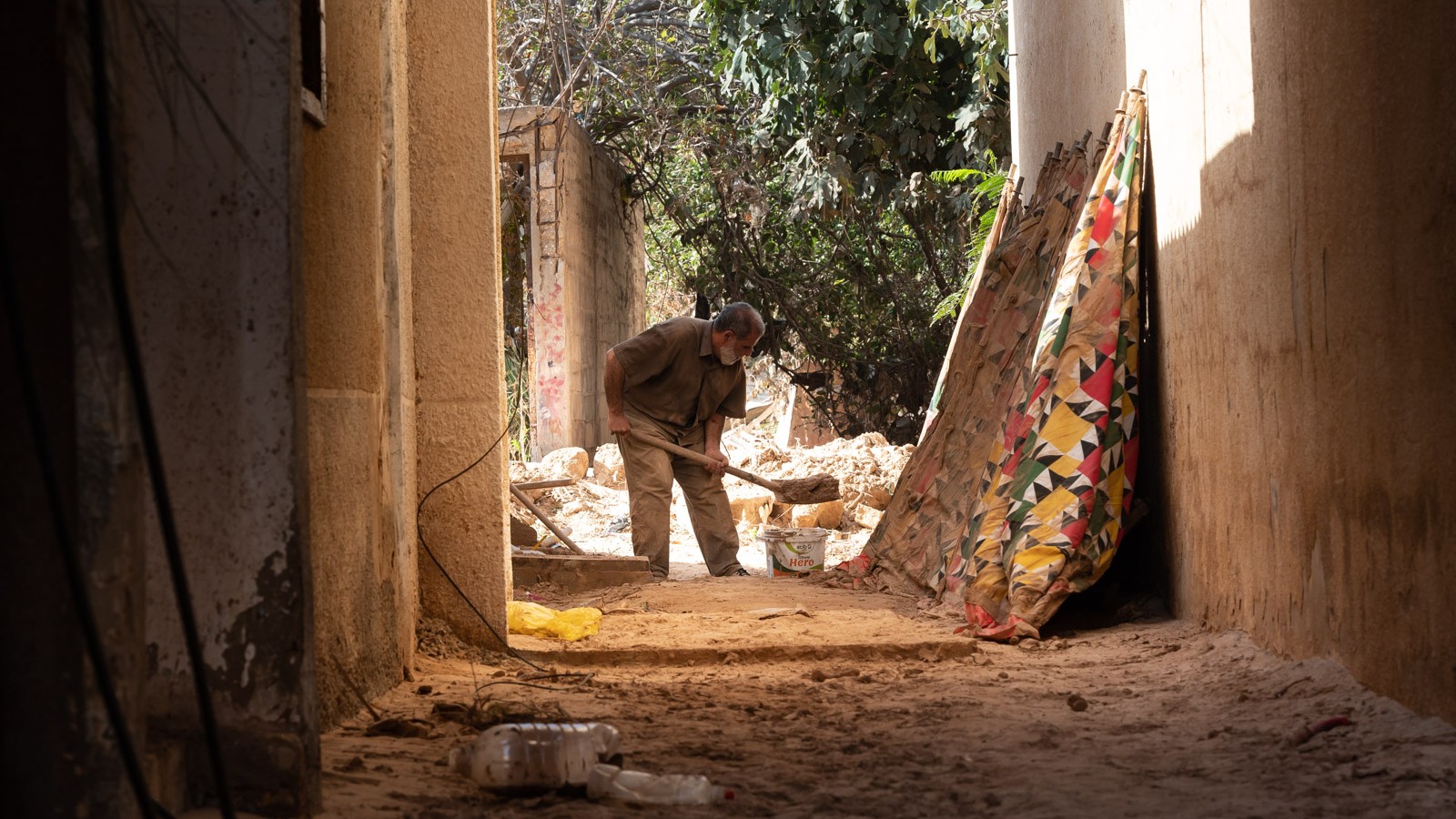Libya floods: A sense of abandonment sets in as aid workers leave Derna

Two weeks after the Libyan city of Derna was struck by a devastating flood, aid workers and volunteers have begun to pack up their bags.
Search and rescue teams, as well as ordinary Libyans desperate to help, moved heaven and earth to reach the eastern city when it became clear that up to 20,000 people had been killed by flash flooding caused by a dam collapsing.
Most were there to try to save lives, or at worst recover bodies. But today, there is no chance of finding any more survivors, so responders have begun trickling home.
The Spanish, Hungarian and Tunisian search and rescue teams have all begun to leave. So, too, have western Libyan armed groups, such as Battalion 444 and Battalion 166, whose presence in Derna was striking, as Libya is divided between eastern and western administrations that have at times been at war.
Several volunteers from across the country had also flocked to Derna of their own accord, but are gradually leaving.
Stay informed with MEE's newsletters
Sign up to get the latest alerts, insights and analysis, starting with Turkey Unpacked
Clearly, the nature of the required aid response has changed.
There are an estimated 16,000 people displaced in and around Derna, but the government is yet to provide alternative housing for them, except school classrooms.
Some of the luckier displaced Libyans have been able to stay with relatives in the city and elsewhere, while others have set up tents in front of what remains of their homes, refusing to be forced away.
Outside one collapsed building are camped the Sheikh family, or what’s left of them.
"Twenty-five people died in this building, the youngest of them was six months old. We found only four bodies that we could bury. The rest, we have no trace of," Ali Sheikh, the head of the family, tells Middle East Eye.
Ali recalls how before the flood he would come home to find his three children eagerly awaiting him, hoping he’d brought them some snacks.
"My mother, my wife and my three children died, as well as two of my brothers and their families. Only my brother here and my niece's son, who is sleeping in this tent, survived."
Ali says a person from western Libya approached him recently, took him to his car and showed him a bag of money in the boot and told him to take whatever he needed, but he refused.
"What will I do with the money? Get married? I have no desire to marry. Will they give me a home? Who will I live with after losing my entire family? I no longer want anything, I just want someone to help me endure this."
Responders exhausted
Some 10,000 people are believed to still be missing. Although it’s thought that most bodies in the city centre have been retrieved, dive teams still scour the sea.
“At least 50 percent of the volunteers have already left Derna,” Hossam Nasr, a volunteer from the Tripoli Red Crescent, told MEE.
Making matters more difficult for the aid response has been a clampdown by authorities that followed protests on 18 September, which included a communications blackout.
Coordination between authorities and the various aid groups and volunteers has also been poor. Meanwhile, Nasr said logistical issues have plagued the aid response, with responders worked to exhaustion and often left without proper food or accommodation.
In central Derna, Atiya, a man in his late 50s, is trying to clear the mounds of mud deposited by the flood in front of his house.
Atiya and his family managed to escape the disaster, and only the ground floor of his home was submerged, but he’s now busy trying to sort his own flood defences. This is just the beginning of the rainy season, and now there’s no dam in the valley leading to Derna to hold the waters back.
Atiya wants the government to provide simple equipment to residents like himself, whose homes were not severely damaged but can be restored and protected using tools like spades and hand carts. He adds that the recent restrictions on access to the city have been a great hindrance.
Other residents are starting from scratch. Smoking a cigarette among a group of people on a Derna street, one man in his 60s thanked God his family survived. “We got out of the house, and God saved us."
As for his house, the man points at the remnants of two concrete pillars. “This is what's left of it!”
This article is available in French on Middle East Eye French edition.
Middle East Eye delivers independent and unrivalled coverage and analysis of the Middle East, North Africa and beyond. To learn more about republishing this content and the associated fees, please fill out this form. More about MEE can be found here.






